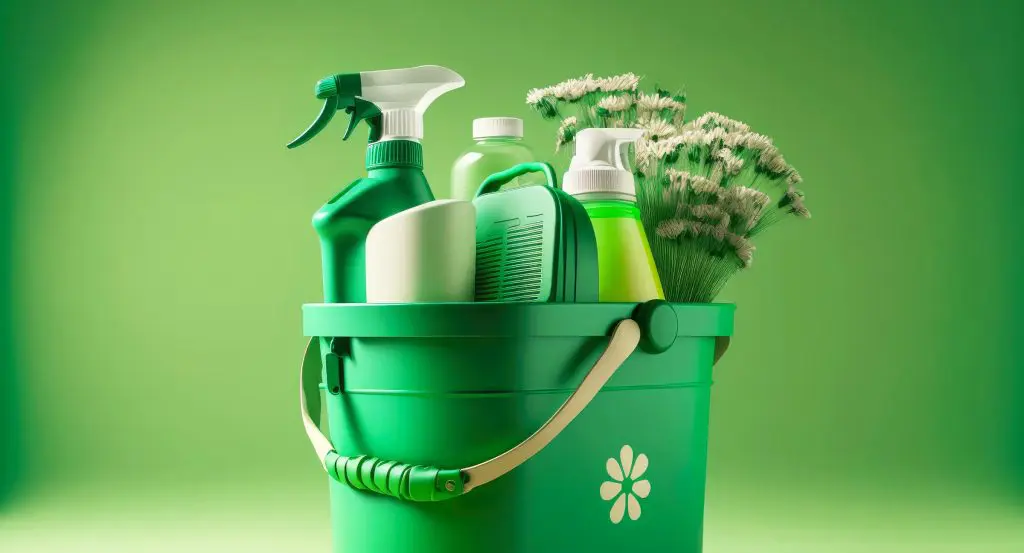When we think of veganism, our minds often go straight to food — plant-based meals, cruelty-free ingredients, and sustainable cooking practices. But true vegan living goes beyond the boundaries of the kitchen. Your home is filled with choices that impact animals, the environment, and even your health. From the furniture you sit on to the candles you light, how can the rest of your home align with the ethics of a vegan lifestyle?
Furnishing with Compassion

The furniture and decor in our homes often hide a story of animal exploitation that many of us may overlook. Items such as leather couches, woolen rugs, and silk curtains are common household staples, but their production often involves significant harm to animals. Leather, for instance, is a byproduct of the meat and dairy industry, requiring the killing of animals and contributing to environmental pollution through toxic tanning processes. Similarly, wool production is tied to the exploitation of sheep, with practices that can cause pain and distress, while silk is obtained by boiling silkworms alive during the fiber extraction process.
Fortunately, creating a compassionate and cruelty-free home is easier than ever. Faux leather, for example, mimics the look and feel of genuine leather without involving animals, and it comes in a wide range of styles and durability options. Organic cotton and hemp are excellent alternatives for upholstery and curtains, offering breathability, sustainability, and elegance. For rugs, jute, bamboo, and recycled materials provide ethical and eco-friendly choices that still maintain comfort and aesthetic appeal.
In addition, many modern furniture brands are now actively embracing sustainability and animal-free materials in their designs. These brands not only prioritize cruelty-free production but also use innovative methods to reduce their environmental footprint. From sofas made with plant-based leathers to recycled wood tables and vegan-certified mattresses, the market for ethical furnishings is growing rapidly. By supporting these brands, consumers can enjoy beautifully crafted pieces while aligning their living spaces with their values.
Making these changes not only benefits animals but also contributes to a healthier home environment. Many traditional materials, such as leather and wool, undergo chemical-heavy processing that can release harmful toxins into your home. Switching to natural, plant-based, or recycled alternatives reduces exposure to these substances and promotes better indoor air quality.
Incorporating compassion into your furnishings is about more than just replacing items — it’s a shift in mindset. By choosing cruelty-free options, you’re creating a space that reflects kindness and care, not just for animals but also for the planet and future generations. With the increasing availability of animal-friendly and sustainable options, designing a home that aligns with your vegan lifestyle is no longer a challenge but an exciting opportunity.
Eco-Friendly Cleaning Supplies

Traditional cleaning products, though effective at maintaining a tidy home, often come with hidden costs — not just for the environment, but for the animals involved in their production. Many conventional cleaning products contain animal-derived ingredients, such as lanolin (from sheep’s wool), stearic acid (from animal fat), and even bone char (used in some whiteners). In addition, numerous cleaning brands still engage in animal testing, subjecting innocent animals to painful procedures in the name of product safety, despite the availability of cruelty-free alternatives.
This is where transitioning to vegan and cruelty-free cleaning brands makes a significant difference. By choosing products that are both effective and ethical, you can ensure your home remains spotless without contributing to the harm of animals. The good news is that the market for vegan and cruelty-free cleaning products has expanded significantly in recent years, offering a wide range of options that are safe for both your home and the planet. Many of these products are made from plant-based ingredients that clean just as effectively as their chemical-laden counterparts, but without relying on animal-based substances or harmful toxins.
When shopping for eco-friendly cleaning supplies, it’s important to look for certifications that confirm the product’s vegan and cruelty-free status. Trusted organizations like Leaping Bunny and the Vegan Society provide certification to brands that meet rigorous standards for both ethical production and non-animal testing. Products with these certifications give you peace of mind, knowing that they are free from animal-derived ingredients and have not been tested on animals.
In addition to being cruelty-free, many of these products are also environmentally friendly. Plant-based formulas are often biodegradable, meaning they break down naturally without polluting waterways or contributing to soil contamination. Many brands also use recyclable or biodegradable packaging, helping reduce the overall environmental footprint. This makes vegan cleaning products not only a kinder choice for animals but also a smarter option for the environment.
Switching to eco-friendly cleaning supplies can also improve the air quality in your home. Traditional cleaning products are often filled with harsh chemicals like ammonia, chlorine bleach, and phthalates, which can release toxic fumes that are harmful to both humans and animals. Vegan and eco-friendly alternatives use natural, non-toxic ingredients such as vinegar, baking soda, and essential oils, which provide a safe and pleasant alternative for your cleaning routine.
Additionally, by choosing cruelty-free products, you’re supporting companies that prioritize ethical business practices. Many of these brands are committed to sustainable manufacturing processes and ethical sourcing, further aligning with the values of a compassionate lifestyle. Supporting these brands helps promote a market shift toward more responsible, conscious consumerism and encourages the industry to move away from harmful practices.
While the transition to vegan and eco-friendly cleaning products may seem like a small change, it can have a profound impact on both your home and the world around you. Not only will you contribute to a more compassionate and sustainable future, but you’ll also create a healthier, safer environment for everyone in your household — human, animal, and environmental alike. As more companies embrace cruelty-free and green alternatives, it’s easier than ever to make the change and enjoy a clean home with a clear conscience.
Decor That Makes a Difference

When we think about decorating our homes, it’s easy to focus solely on aesthetics — color schemes, furniture arrangements, and artwork. However, many everyday decor items, from the candles that illuminate our rooms to the fabrics adorning our walls, may be made from materials that involve animal exploitation. While they may enhance the beauty of your living space, these items could carry a hidden cost: the harm of animals and the environment. By becoming more conscious of the materials used in your home decor, you can create a space that not only reflects your style but also aligns with your ethical values.
One of the most common animal-derived products found in home decor is beeswax, often used in candles. While beeswax candles may be marketed as a “natural” and “environmentally friendly” option, their production involves the exploitation of bees, who produce the wax for the benefit of the hive rather than for human use. Moreover, many candles, even those that are not made from beeswax, may contain animal-derived ingredients like stearin (derived from animal fats) or synthetic chemicals that harm the environment when burned.
For a truly vegan-friendly alternative, soy wax and coconut wax candles offer an excellent solution. These candles are made from plant-based ingredients and burn cleanly without releasing harmful toxins into the air. Soy wax candles, in particular, are a popular choice because they are biodegradable, produce less soot, and are made from renewable resources. Coconut wax candles, on the other hand, burn slower, meaning they last longer and provide a longer-lasting fragrance. Choosing soy or coconut wax candles allows you to enjoy the ambiance of a beautifully scented room without contributing to animal exploitation.
Beyond candles, artwork can also pose ethical dilemmas for those living a vegan lifestyle. Traditional artworks often utilize materials derived from animals, such as silk canvases or pigment made from crushed insects (like carmine). Silk production, in particular, involves boiling silkworms alive to harvest their threads, raising serious ethical concerns for vegans seeking to avoid animal harm. While silk may add a luxurious touch to your decor, there are plenty of alternatives that are both aesthetically pleasing and cruelty-free.
For your wall art, consider choosing synthetic or recycled canvas materials, which mimic the texture and durability of silk without the use of any animal products. You can also look for vegan-friendly paints made from plant-based ingredients rather than those containing animal-derived substances. Additionally, some artists and brands are now offering art pieces made from sustainable and ethical materials, including recycled paper, wood, and plastic, as well as eco-friendly paints and dyes.
In terms of other home decor items, it’s important to evaluate whether common materials like wool (used in rugs and throws), down feathers (used in bedding and pillows), and fur (used in furniture or blankets) are present. All of these materials come from animals and, in many cases, involve processes that contribute to animal cruelty. For example, wool production can involve painful practices such as mulesing (removing the skin from a sheep’s backside), while down feathers are often plucked from live birds or harvested from those already slaughtered. Fortunately, there are cruelty-free alternatives available, including organic cotton rugs, faux fur throws, and synthetic-down pillows that replicate the luxurious feel without causing harm to animals.
When it comes to your decor, being mindful of the materials and methods used to create your favorite items is a small but impactful way to ensure that your home aligns with your values. By choosing items made from sustainable, vegan-friendly materials like soy candles, synthetic fabrics, and recycled art supplies, you can design a living space that reflects your compassion for animals, the planet, and the people around you.
Moreover, the growing availability of ethical and sustainable decor means you no longer need to sacrifice style for compassion. Whether you’re lighting up your living room with a beautifully scented candle or adding a new piece of art to your walls, there are now plenty of options that allow you to express yourself while making a positive impact on the world. By making informed choices, your decor can make a difference — not only in how your home looks but in how it supports a more ethical and sustainable future.
Sustainable Bedding and Textiles

The textiles we use in our bedrooms, from duvets and pillows to blankets and sheets, often carry hidden ethical and environmental costs. Many bedding items are traditionally filled with animal-derived materials like down feathers and wool, which raise concerns for those following a vegan lifestyle or anyone looking to reduce their environmental footprint. Down, for example, is typically plucked from geese or ducks, often while the birds are alive, and wool is harvested through a process that can be painful for sheep. These practices not only raise animal welfare concerns but can also be harmful to the environment, as the production and processing of these materials often involve significant resource use and chemical treatments.
Fortunately, a growing market for sustainable bedding and textiles has emerged, offering vegan-friendly alternatives that provide the same comfort and warmth without exploiting animals or harming the planet. One of the best alternatives is recycled polyester, which is made from recycled plastic bottles or other plastic waste, diverting these materials from landfills and reducing the need for virgin materials. Recycled polyester is durable, soft, and easy to care for, making it an excellent choice for bedding. It also helps conserve natural resources and reduce pollution, aligning with eco-conscious values.
Another popular alternative is bamboo fibers, which have gained popularity for their sustainability and softness. Bamboo is a fast-growing, renewable resource that requires minimal water and no pesticides to thrive, making it one of the most environmentally friendly plant-based materials. Bamboo bedding is not only hypoallergenic but also naturally moisture-wicking, which helps regulate body temperature and ensures a comfortable night’s sleep. Bamboo sheets, duvets, and blankets provide the same luxurious feel as silk or cotton without the environmental or ethical concerns associated with animal-derived textiles.
In addition to being cruelty-free, these vegan alternatives often offer hypoallergenic benefits. Many people suffer from allergies triggered by down feathers or wool, which can cause discomfort or respiratory issues. Vegan bedding options like recycled polyester or bamboo are naturally resistant to dust mites and mold, reducing the risk of allergens accumulating in your bedding and improving overall sleep quality.
When considering sustainable textiles, it’s important to look for products that use eco-friendly manufacturing processes as well. This includes using non-toxic dyes, reducing water consumption, and ensuring that the production facilities are committed to sustainable practices. Many brands now offer bedding lines that are both vegan and sustainably produced, providing peace of mind that you’re making an ethical choice while also supporting environmentally responsible companies.
Opting for vegan bedding also extends to other home textiles, such as curtains, rugs, and mattresses. Instead of using wool or down for padding and insulation, many eco-conscious companies are using plant-based or recycled materials, such as organic cotton, hemp, and natural latex. These materials not only eliminate the need for animal-derived substances but also offer a variety of benefits, such as improved durability and breathability, making them an excellent choice for creating a comfortable and ethical home environment.
As consumers become more aware of the ethical and environmental impact of their purchases, sustainable bedding is gaining popularity. By choosing alternatives like recycled polyester, bamboo, and other plant-based fibers, you can rest easy knowing that your choices are cruelty-free, hypoallergenic, and better for the planet. These alternatives provide a luxurious, comfortable sleeping experience while promoting a more sustainable and compassionate lifestyle. In addition, many of these products are designed to last longer than their animal-derived counterparts, making them a wise investment in both your well-being and the health of the planet.
The growing availability of vegan bedding options means that achieving a compassionate, eco-friendly bedroom is easier than ever. Whether you’re swapping out your down-filled duvet for a bamboo alternative or upgrading to an organic cotton mattress, you can feel good about creating a space that supports both your personal values and the environment. Sustainable textiles are not just a trend — they’re a step toward a more ethical and sustainable future, one where we can all sleep soundly knowing we’re making a positive impact.
Animal-Free Personal Care and Home Fragrances

When it comes to maintaining a vegan lifestyle, it’s easy to focus on the kitchen and food choices, but what about the products you use in your bathroom and living room? Many personal care and home fragrance products contain animal-derived ingredients or have been tested on animals, often without our knowledge. By making more mindful choices, you can ensure that your personal care routine and home environment are as cruelty-free and eco-friendly as the food you eat.
In the bathroom, common products like soaps, shampoos, and conditioners are often made with animal-derived ingredients such as gelatin, lanolin (from sheep’s wool), honey, or keratin (extracted from animal hair or feathers). Additionally, many of these products have been tested on animals, a practice that is still legal in some countries. The good news is that there are now countless vegan-certified alternatives available. Look for labels like the Vegan Society or Leaping Bunny, which certify that products are free from animal-derived ingredients and haven’t been tested on animals. Vegan shampoos, conditioners, and soaps made with plant-based ingredients, such as coconut oil, shea butter, and essential oils, can keep your skin and hair healthy without harming animals. Many vegan personal care products also come in eco-friendly packaging, such as recyclable containers or zero-waste options, further reducing environmental impact.
In the living room, the fragrances you use can also carry hidden animal-derived ingredients or involve animal testing. Many air fresheners, for example, contain synthetic chemicals or paraffin wax, both of which have negative environmental impacts. Paraffin, a petroleum byproduct, can release toxic chemicals when burned, and many synthetic air fresheners are made with harmful artificial fragrances. Instead, opt for natural, plant-based air fresheners that are cruelty-free. Essential oils are a great alternative to synthetic sprays. Essential oils such as lavender, eucalyptus, or peppermint are derived from plants and can be used in a variety of ways — from diffusing in the air to adding a few drops to a homemade cleaning solution. Not only do they smell wonderful, but they also offer various therapeutic benefits, such as promoting relaxation or improving focus.
Cruelty-free diffusers can help disperse essential oils in your home, offering a natural and safe way to freshen the air without relying on harmful chemicals. Many brands now offer elegant, vegan diffusers made from sustainable materials, such as glass or bamboo, and powered by energy-efficient LED lights or rechargeable batteries. These diffusers work perfectly with essential oils to create a calming atmosphere without the animal exploitation that often comes with traditional air freshening methods.
Switching to vegan personal care products and home fragrances is a simple yet powerful way to make your home more ethical and eco-friendly. By choosing items that are free from animal-derived ingredients and cruelty-free, you are supporting brands that prioritize compassion, sustainability, and transparency. In addition, these products often contain fewer synthetic chemicals, which means they’re gentler on your skin, hair, and the environment.
Not only are these alternatives healthier for you and the planet, but they also reflect a more conscious and compassionate lifestyle. It’s easy to overlook the animal products hidden in our everyday household items, but making small changes to the products you choose can make a huge difference in reducing animal suffering and environmental harm. From plant-based soaps to natural essential oils, there are plenty of vegan-certified, cruelty-free options available to help you maintain a home that aligns with your ethical values. With so many choices, it’s easier than ever to create a space that’s free from animal exploitation, both in your personal care routine and in the air you breathe.
The Power of Minimalism

Adopting a minimalist approach in your home goes hand in hand with a vegan lifestyle, focusing on consuming less and making mindful purchases. Minimalism encourages thoughtful decisions, prioritizing quality over quantity and reducing waste. This approach aligns with the sustainability ethos of vegan living, ensuring that every item you bring into your home supports your ethical and environmental values.
By consuming less, minimalism helps to combat overconsumption, which often leads to mass production and waste. When you purchase fewer but more durable, cruelty-free items, you’re not only reducing your carbon footprint but also supporting sustainable and ethical brands. This shift encourages you to choose items like vegan leather furniture or eco-friendly bedding that are long-lasting and free from animal exploitation.
Minimalism also helps to reduce waste by emphasizing reusable, recyclable, and biodegradable products. Instead of buying disposable goods, minimalism encourages repurposing and upcycling, which extends the lifespan of items and lowers demand for new resources. This approach not only reduces waste but also promotes a creative, resourceful way of living.
Ultimately, minimalism fosters a simpler, more intentional lifestyle. It encourages conscious consumption and helps to create a home that reflects your vegan values. By focusing on quality over quantity, minimalism reduces your environmental impact and supports a compassionate, cruelty-free way of living.
Veganism in the kitchen is a great start, but extending this philosophy to the rest of your home creates a cohesive, compassionate lifestyle. By making mindful choices in furnishings, cleaning products, and everyday items, you can build a space that reflects your values and contributes to a better world for all living beings.
So, is your home ready to go vegan?















































